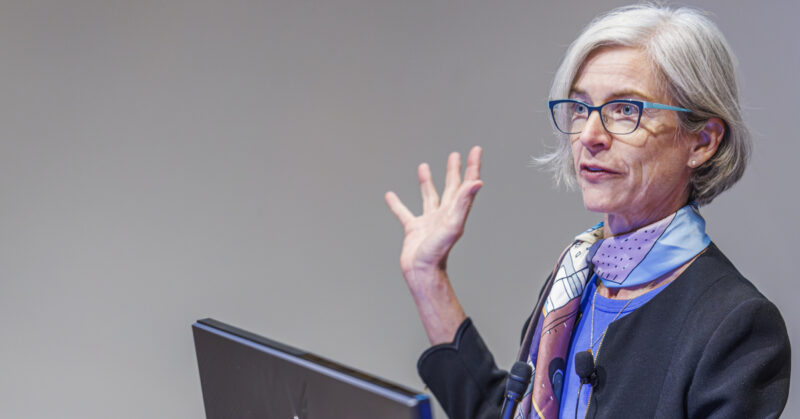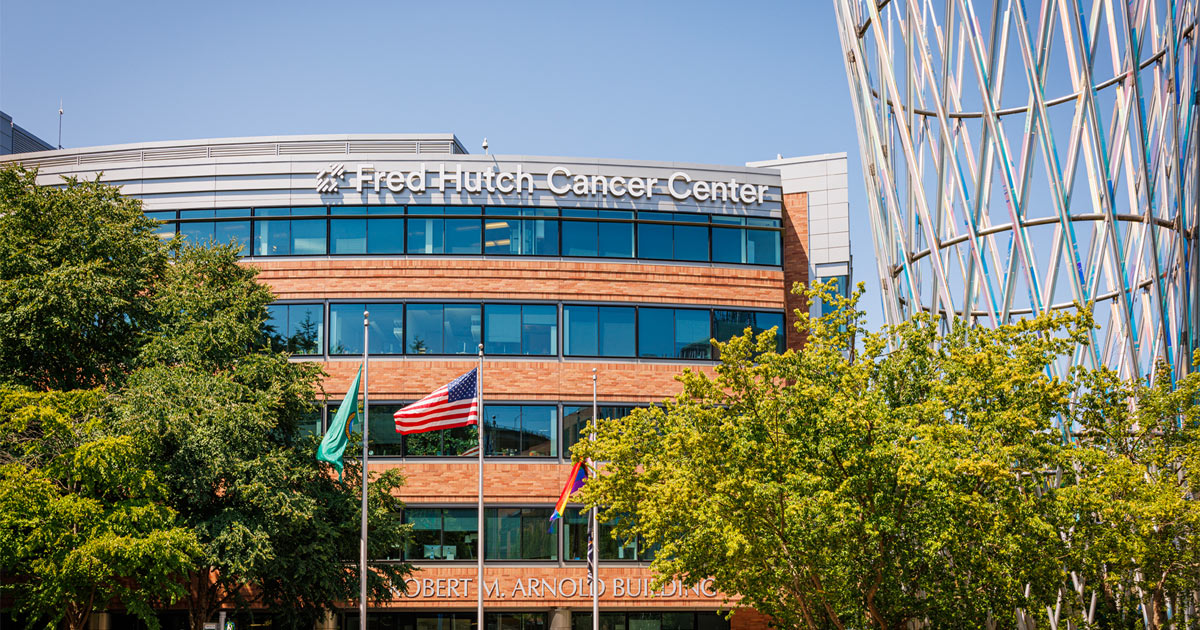Fred Hutchinson Cancer Center shared a post on X:
“Nobel Laureate Jennifer A. Doudna kicked off Fred Hutchinson’s inaugural President’s Seminar Series last week. She spoke about how improving CRISPR’s editing capabilities and delivery method could make CRISPR-based gene therapies cheaper and more efficient.”

Nobel Prize winner Jennifer A. Doudna, PhD, spoke at the Fred Hutch Cancer Center in Seattle, launching the President’s Seminar series hosted by Thomas J. Lynch, Jr. She discussed her lab’s work to enhance gene therapies by improving the efficiency and delivery of CRISPR-based DNA editing technologies.
Jennifer Doudna is a Nobel Prize-winning chemist, the Li Ka Shing Chancellor’s Chair in Biomedical and Health Sciences, and a professor specializing in biochemistry, biophysics, and structural biology. Her research centers on RNA, particularly its complex globular structures, some of which act as enzymes or interact with proteins. Her lab’s work on RNA biology led to the development of CRISPR-Cas9, a revolutionary tool for targeted genome modifications.
Doudna, a professor at UC Berkeley and holder of the Li Ka Shing Chancellor’s Chair in Biomedical and Health Sciences, co-developed CRISPR-Cas9 with Emmanuelle Charpentier, revolutionizing gene editing in biomedicine and agriculture. Their research aims to make gene therapies more affordable and accessible.
Growing up in Hilo, Hawaii, Doudna studied at Pomona College and earned her PhD at Harvard Medical School, focusing on ribozymes. She joined UC Berkeley in 2002 and, in 2012, published a groundbreaking paper on CRISPR as a genome-editing tool. By December 2023, the FDA approved Casgevy, the first CRISPR-based gene therapy for sickle cell disease.
Doudna advocates for safe CRISPR use and founded the Innovative Genomics Institute, collaborating with UC Berkeley, Gladstone, and UCSF. Her research addresses fundamental questions about bacterial immunity and aims to enhance the efficacy of CRISPR therapies, which currently can be prohibitively expensive and complex, particularly for sickle cell treatment.
For more posts from Fred Hutchinson Cancer Center, visit oncodaily.com
